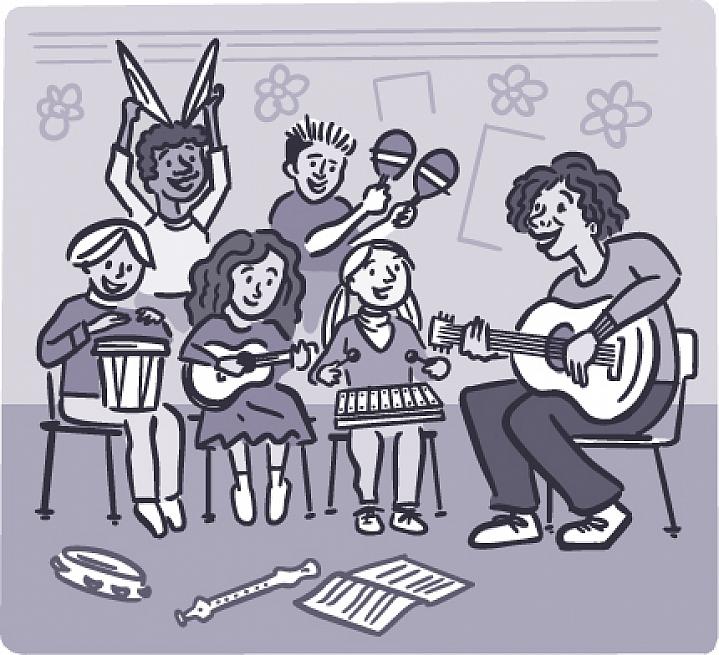Sound Health - Music Gets You Moving and More
by Robert Glisci, DDS, PC on 07/19/19

Music has been around since ancient times. It is part of every known culture. It can get your foot tapping, lift your mood, and even help you recall a distant memory. Did you know that music can bring other health benefits? Scientists are exploring the different ways music stimulates healthier bodies and minds.
“When you listen to or create music, it affects how you think, feel, move, and more,” says neuroscientist Dr. Robert Finkelstein, who co-leads NIH’s music and health initiative.
“Today, modern technologies are helping researchers learn more about how the brain works, what parts of the brain respond to music, and how music might help ease symptoms of certain diseases and conditions,” he explains.
The brain is a complex processing hub. It’s the control center of your nervous system, the network of nerve cells that carry messages to and from your body and the brain. A healthy brain tries to make sense of the world around you and the constant information it receives, including sound and music.
“Sound is an important and profound force in our lives,” explains Northwestern University neuroscientist Dr. Nina Kraus. “The more we exercise our sound processing in the brain, the better the brain becomes at making sense of sound and the world around us. Music does this more than any other sound.”
Music and other sounds enter the ear as sound waves. These create vibrations on our eardrum that are transformed into electrical signals. The electrical signals travel up the auditory nerve to the brain’s auditory cortex. This brain area interprets the sound into something we recognize and understand.
But music affects more than the brain areas that process sound. Using techniques that take pictures of the brain, like fMRI, scientists have found that music affects other brain areas. When music stimulates the brain, it shows up on brain images as flickers of bright light. Studies have shown that music “lights up” brain areas involved in emotion, memory, and even physical movement.
Read more at NewsInHealth
Comments (0)